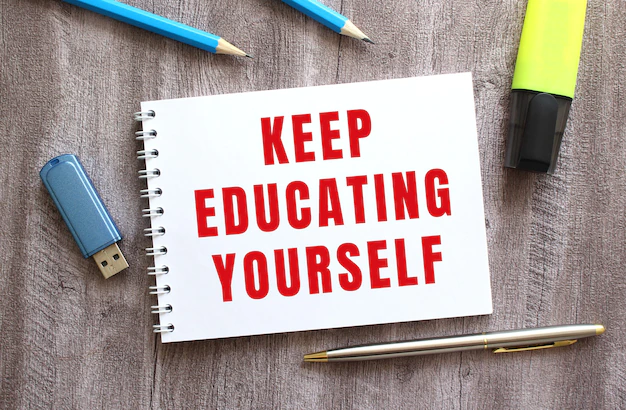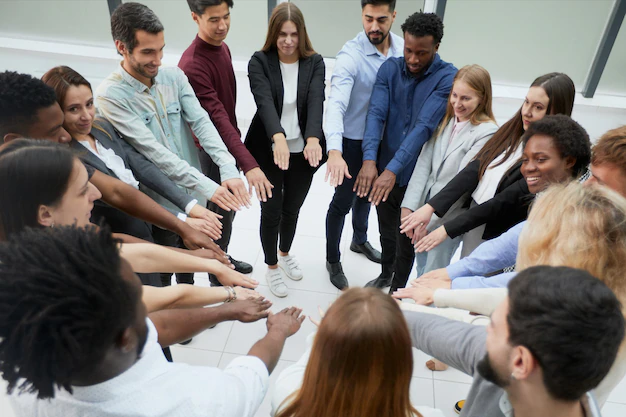You can decide each day the type of person you want to be. You choose if you want to push for positive change or stand back on the sidelines. While some instances may call for you to take a step back, being an ally or advocate is a more purposeful way to live.
However, this is not a simple task, and it’s easier to withdraw yourself from situations altogether — particularly when others are present. This is what is known as the bystander effect, a theory that claims individuals are less likely to pitch in and help when others are present. This is why nobody seems to notice when a little boy is playing on the playground without supervision. Or why do people pass by an older woman who rightly needs help crossing the street? Acknowledging the bystander effect is the first step in coming into your power and being an ally and advocate.
Before going any further, it’s important to define ally and advocate. These terms are oftentimes used integrandably, but they have distinct meanings. An ally is someone who is not part of the marginalized group but supports it. An advocate goes a step further; they are someone who may or may not be part of the marginalized group, but they act to make change.
While you may want to impact change, you simply may not know how. If this is where you find yourself, keep reading. Below are three tips for being an ally and advocate no matter where you are.
1. Educate Yourself

You can’t be an ally or an advocate without educating yourself on the topic matter at hand. Before you jump into supporting a side of any social justice movement, you need to know the facts. Going alone without conducting any research can be insulting and triggering to some — two outcomes that you want to avoid. And while you may be tempted to just ask individuals in the marginalized community, recognize that this could be an unfair burden. Conducting your research takes time, so be prepared to spend some time with the materials.
Educating yourself can start with reading up on the history of the marginalized community and watching movies and television series. You may also decide to go deeper by reading peer-reviewed articles and clips from newspapers. Of course, make sure the materials you are learning from are from well-documented sources. Another helpful resource is to learn from a designated representative, such as a DEI speaker. These speakers are prepared to address specific biases related to certain marginalized communities and can answer your questions openly.
2. Understand Your Privileges
Part of doing your research is also looking inward and understanding your privileges. Some individuals are born with privileges that put them at an advantage over others. This can be based on skin colour economic status, gender, or many other characteristics. Because these are unearned traits, individuals don’t have to do anything to be granted them. They are simply showing up to the table with these privileges in their back pocket.
To be a better ally or advocate, you need to recognize and navigate some of your unearned advantages. You may fall into several of these categories or just one. No matter what, understand that where you are coming from is different from the underserved, marginalized community. You cannot fully grasp what they are going through or how they feel because you have a privilege they don’t have.
3. Stop Assuming And Start Listening
Let’s say that your friend goes by the pronoun ‘they.’ You two are at lunch with other people and someone refers to your friend as ‘she.’ While you may quickly assume that your friend wants to correct the situation, you don’t know for sure. Instead of jumping in on their behalf, you may want to ask them after lunch how they would like you to respond if it occurs again. They may ask you to speak up or they may be confident in themselves and feel alright with not forcing the issue.
This is just one example where you may have wrongly assumed someone else’s preference. Allyship and advocacy are about listening and learning from others. You can show up as a better friend by listening and empathising with those in the marginalized community. This doesn’t mean you should ask your friend how to be an ally. Rather, listen to how they are feeling and acknowledge that their feelings are valid and heard by you.
4. Join Or Build A Community

No one can, or should, do the hard work alone. After all, allies and advocates are stronger together than they are individually. By joining a community of like-minded individuals, you will gain more momentum and feel more empowered in doing the hard work.
Your community can start with friends who share the same values as you. Going to a protest together can help you form a larger group with other compatible individuals. Churches, schools, and employers can also help facilitate your joining or building a community. Some of these places may already have established communities that are open to new members. For instance, many employers have ERGS, or employee resource groups, that aim to foster diversity and inclusion.
Takeaways
There is no better time than now to stand up and become a strong ally or advocate. Today’s world is fragmented and, at times, polarized. By making meaningful differences, you will likely feel more empowered and fulfilled in your personal and professional life.




























